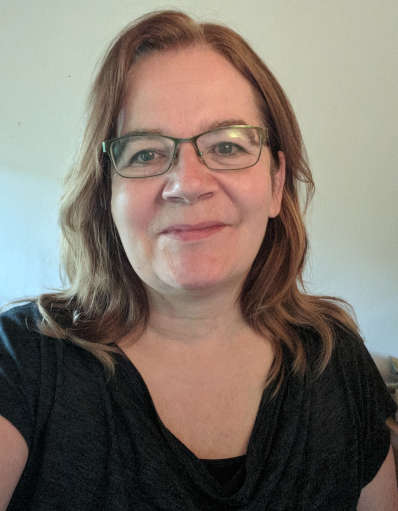IPPOG
Members
Switzerland

Intro
The Swiss Institute for Particle Physics (CHIPP) is an association according to Swiss law regrouping all the particle, astroparticle, and nuclear physicists holding a Master in physics and working for a Swiss institution, as well as the Swiss PhD nationals working at CERN.
Founded in 2003, CHIPP aims at strengthening in Switzerland three main pillars: Particle physics at the high-energy and intensity frontiers
astroparticle physics and neutrino physics.
This is achieved by promote public awareness on particle and astroparticle physics, helping towards a successful participation of Swiss groups in international projects and ensuring a proper Swiss representation in relevant national and international bodies.
Details
German
Das Schweizerische Institut für Teilchenphysik (CHIPP) ist die Dachorganisation der Schweizer Forschenden auf dem Gebiet der Teilchen-, Astroteilchen- und Kernphysik mit einem Master in Physik, die für eine Schweizer Institution arbeiten, sowie die Schweizer Doktoranden, die am CERN arbeiten, zusammengeschlossen sind.
CHIPP wurde 2003 gegründet und zielt darauf ab in der Schweiz die drei Forschungsgebiete Teilchenphysik, Astroteilchenphysik und Neutrinophysik zu stärken.
Dies wird erreicht durch die Förderung des öffentlichen Bewusstseins für die Teilchen- und Astroteilchenphysik, die Unterstützung der erfolgreichen Beteiligung von Schweizer Gruppen an internationalen Projekten und die Sicherstellung einer angemessenen Schweizer Vertretung in relevanten nationalen und internationalen Gremien.
French
L'Institut Suisse de Physique des Particules (CHIPP) réunit les chercheuses et chercheurs de la physique des particules, des astroparticules et de la physique nucléaire. Ces chercheurs doivent être titulaires d'un Master en physique et travailler pour une institution Suisse. Font partie de CHIPP aussi les doctorants suisses travaillant au CERN.
Fondé en 2003, le CHIPP vise à renforcer trois piliers principaux en Suisse: la physique des particules aux frontières des hautes énergies et des hautes intensités, la physique des astroparticules et la physique des neutrinos.
Cet objectif est atteint en sensibilisant le public à la physique des particules et des astroparticules, en contribuant à une participation de groupes suisses à des projets internationaux et en assurant une représentation suisse adéquate dans les organes nationaux et internationaux pertinents.
Italian
L'Istituto Svizzero di Fisica delle Particelle (CHIPP) riunisce i ricercatori di fisica delle particelle, dell'astrofisica e del nucleare che sono in possesso di un Master in fisica e che lavorano per un istituto Svizzero. Sono inclusi anche i cittadini svizzeri con dottorato che lavorano al CERN. Fondato nel 2003, CHIPP mira a rafforzare in Svizzera tre pilastri principali: fisica delle particelle alle frontiere delle alte energie e dell'intensità, astrofisica e fisica dei neutrini.
Questo obiettivo viene raggiunto promuovendo l’educazione del pubblico riguardo la fisica delle particelle e dell’astrofisica, favorendo una brillante partecipazione dei gruppi svizzeri in progetti internazionali e assicurando un'adeguata rappresentanza svizzera negli organismi nazionali e internazionali pertinenti.
JOINED: 2016
CURRENT STATUS: MEMBER
Representative

Senior Physicist
Physik-Institut, University of Zurich, Winterthurerstr. 190, 8057 Zurich, Switzerland
kmueller@physik.uzh.ch
More Information:
http://www.physik.uzh.ch/~kmueller
Katharina Müller
Katharina is a senior scientist at the University of Zurich working on the LHCb experiment at the Large Hadron Collider at CERN. She studied physics at the University of Zurich and received her PhD with a measurement of the proton structure function at the H1 experiment at the electron-proton collider HERA. Her current research interests are measurements with electroweak bosons or prompt photons as well as central exclusive production and diffraction with the LHCb experiment. All these processes probe the structure of the proton and are complementary to the measurements by the ATLAS and CMS experiments. Katharina teaches master and undergraduate courses at the University of Zurich and is advisor for physics students. Since 2015 she is also working for the Science Lab of the University of Zurich that offers courses for schools at the university in order to promote MINT (mathematics, informatics, natural sciences, and technics) areas in education.
Katharina takes an active part in several outreach activities at the University of Zurich, such as Scientifica, a scientific outreach event for the general public in Zurich, information days for high school students, visits of the laboratories of the institute as well as education days for teachers. She is involved in the organisation of the IPPOG masterclasses in Zurich and offers courses in physics at the Science Lab for school classes coming to the university – among them a course in particle physics. “I really enjoy working with young students, it is very motivating and gives immediate feedback.”
Katharina is Switzerland’s representative to IPPOG since 2017
German
Katharina nimmt aktiv an verschiedenen Outreach-Aktivitäten der Universität Zürich teil, wie z.B. Scientifica, eine wissenschaftliche Veranstaltung für die breite Öffentlichkeit in Zürich, Informationstage für Oberstufenschüler, Besuche in den Laboren des Instituts sowie Bildungstage für Lehrer. Sie ist an der Organisation der IPPOG-Masterclasses in Zürich beteiligt und bietet im Science Lab UZH Physikkurse für Schulklassen an, die an die Universität kommen - darunter auch einen Kurs in Teilchenphysik. "Die Arbeit mit Schülern und Schülerinnen macht mir sehr viel Spass, sie ist sehr motivierend und gibt sofortiges Feedback."
Katharina ist seit 2017 die Vertreterin der Schweiz bei IPPOG.
French
Katharina est une scientifique senior de l'Université de Zurich qui travaille sur l'expérience LHCb au Large Hadron Collider du CERN. Elle a étudié la physique à l'université de Zurich et a obtenu son doctorat en mesurant la fonction de structure du proton lors de l'expérience H1 à l’électron-proton accélérateur HERA. Ses recherches actuelles portent sur les mesures des bosons électrofaibles ou des photons isolés avec l'expérience LHCb. Tous ces processus sondent la structure du proton et sont complémentaires des mesures effectuées par les expériences ATLAS et CMS. Katharina enseigne des cours à l'Université de Zurich et est conseillère pour les étudiants en physique. Depuis 2015, elle travaille également pour le Science Lab de l'Université de Zurich qui propose des cours aux écoles de l'université afin de promouvoir les domaines MINT (mathématiques, informatique, sciences naturelles et techniques) dans l'enseignement.
Katharina participe activement à plusieurs activités de divulgation scientifique à l'Université de Zurich, telles que Scientifica, un événement pour le grand public à Zurich, des journées d'information pour les élèves du cycle (lycée), des visites des laboratoires de l'institut ainsi que des journées de formation pour les enseignants. Elle participe à l'organisation des masterclasses de l'IPPOG à Zurich et propose des cours de physique au Science Lab pour les classes d'école venant à l'université - notamment un cours de physique des particules. "J'aime beaucoup travailler avec de jeunes étudiants, c'est très motivant et cela permet d'avoir un retour immédiat."
Katharina est la représentante Suisse à l'IPPOG depuis 2017.
Italian
Katharina è una scienziata senior dell'Università di Zurigo, lavora all'esperimento LHCb presso il Large Hadron Collider del CERN. Ha studiato fisica all'Università di Zurigo e ha conseguito il suo dottorato di ricerca con una misura della funzione della struttura del protone nell'esperimento H1 all’acceleratore di elettroni-protoni HERA. I suoi attuali interessi di ricerca sono le misure con bosoni elettrodeboli o fotoni rapidi, così come la produzione esclusiva centrale e la diffrazione con l'esperimento LHCb. Tutti questi processi sondano la struttura del protone e sono complementari alle misure degli esperimenti ATLAS e CMS. Katharina insegna corsi di master e di laurea all'Università di Zurigo ed è consulente per gli studenti di fisica. Dal 2015 lavora anche per il Science Lab dell'Università di Zurigo che offre corsi universitari per le scuole al fine di promuovere le aree MINT (matematica, informatica, scienze naturali e tecnica) nell'istruzione.
Katharina partecipa attivamente a diverse attività di divulgazione dell'Università di Zurigo, come Scientifica, un evento organizzato per il grande pubblico a Zurigo, giornate informative per gli studenti delle scuole superiori, visite ai laboratori dell'istituto e giornate di formazione per gli insegnanti. È coinvolta nell'organizzazione delle masterclass dell'IPPOG a Zurigo e offre corsi di fisica al Science Lab per le classi scolastiche che vengono all'università - tra cui un corso di fisica delle particelle. "Mi piace molto lavorare con i giovani studenti, è molto motivante e dà un feedback immediato".
Katharina è la rappresentante della Svizzera all'IPPOG dal 2017

